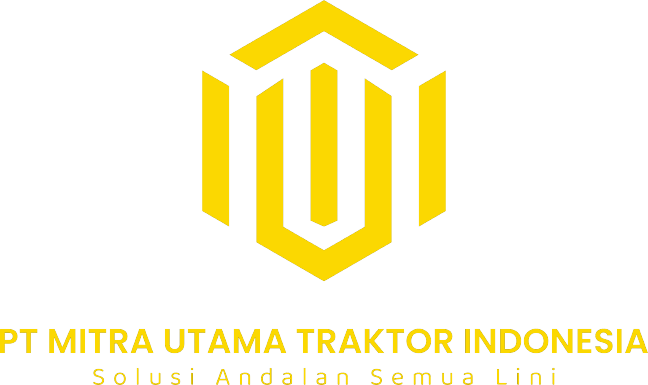Introduction
In recent years, Indonesia has demonstrated a strong commitment to addressing climate change and reducing greenhouse gas emissions through various ambitious policies. One significant milestone in this effort is the government’s goal to achieve Net Zero Emissions by 2060. The Ministry of Transportation (Kemenhub) and the Ministry of Environment and Forestry (KLHK) are two key institutions playing critical roles in achieving this goal, particularly in the transportation and environmental management sectors.
Environmental issues, such as air pollution caused by vehicle emissions, have become a major focus for both ministries. In this article, we will explore how Kemenhub and KLHK collaborate, as well as the roles of ministers in the Red and White Cabinets in supporting these policies. We will also look at how these policies impact companies involved in environmentally friendly fuels.
Net Zero Emission Goal and Government Policies
Indonesia is committed to achieving Net Zero Emissions by 2060, which means that by that year, carbon emissions will be balanced with absorption. To achieve this goal, the government has introduced various policies, including increasing the use of renewable energy and reducing dependence on fossil fuels.
The transportation sector is one of the largest contributors to greenhouse gas emissions in Indonesia. Therefore, the Ministry of Transportation holds a significant responsibility in formulating policies to reduce emissions from this sector. One concrete step is the transition to electric vehicles and biofuels. The ministry is also working to develop supporting infrastructure, such as public electric vehicle charging stations, and strengthen electric-based mass transportation.
The Role of the Ministry of Transportation in Net Zero Emissions
The Ministry of Transportation, currently led by Minister Budi Karya Sumadi, is responsible for regulating various aspects of transportation in Indonesia. Some of the initiatives carried out by Kemenhub include:
- Transition to Electric Vehicles: One of the important steps taken by Kemenhub is encouraging the transition to electric vehicles in the land transportation sector. The government has also provided incentives for electric vehicle manufacturers and encouraged the public to start switching to these environmentally friendly vehicles.
- Environmentally Friendly Public Transportation: In addition to private vehicles, Kemenhub is also focusing on the development of cleaner public transportation, such as the procurement of electric buses and more energy-efficient railway systems.
- Biofuel Policies: Kemenhub is working with various sectors to increase the use of biofuels, including B30 and B100, which are blends of biodiesel with petroleum that are more environmentally friendly.
The Role of the Ministry of Environment and Forestry in Emission Management
On the other hand, the Ministry of Environment and Forestry (KLHK), led by Minister Siti Nurbaya Bakar, also plays a strategic role in achieving Net Zero Emissions, particularly in managing emissions in the environmental and forestry sectors. Some of the actions taken by KLHK include:
- Forest and Land Rehabilitation: KLHK continues to carry out reforestation and forest rehabilitation to increase carbon absorption in Indonesia. Forests play a crucial role as the lungs of the Earth in absorbing carbon emissions produced by various sectors.
- Waste and Industrial Emission Management: KLHK is also responsible for controlling waste and emissions from the industrial sector. They have issued regulations on industrial emission standards that must be followed by companies across Indonesia, including the use of environmentally friendly technologies.
The Ministry of Transportation and KLHK are not working alone in this effort. They collaborate with the private sector and companies engaged in clean energy, including those producing alternative fuels such as biodiesel, bioethanol, and hydrogen-based fuels.

Names of Ministers in the Red and White Cabinets and Their Roles
The Red and White Cabinet, led by President Prabowo Subianto and Vice President Gibran Rakabuming Raka for the 2024-2029 period, consists of 48 ministers, 5 agency heads, and 56 deputy ministers:
- Budi Gunawan: Coordinating Minister for Political and Security Affairs
- Yusril Ihza Mahendra: Coordinating Minister for Law, Human Rights, Immigration, and Corrections
- Airlangga Hartarto: Coordinating Minister for Economic Affairs
- Pratikno: Coordinating Minister for Human Development and Culture
- Agus Harimurti Yudhoyono: Coordinating Minister for Infrastructure and Regional Development
- Muhaimin Iskandar: Coordinating Minister for Community Empowerment
- Zulkifli Hasan: Coordinating Minister for Food
- Prasetyo Hadi: Minister of State Secretary
- Muhammad Tito Karnavian: Minister of Home Affairs
- Sugiono: Minister of Foreign Affairs
- Sjafrie Sjamsoeddin: Minister of Defense
- Nasaruddin Umar: Minister of Religious Affairs
- Supratman Andi Agtas: Minister of Law
- Natalius Pigai: Minister of Human Rights
- Agus Andrianto: Minister of Immigration and Corrections
- Sri Mulyani: Minister of Finance
- Abdul Mu’ti: Minister of Primary and Secondary Education
- Satrio Sumantri Brodjonegoro: Minister of Higher Education, Science, and Technology
- Fadli Zon: Minister of Culture
- Budi Gunadi Sadikin: Minister of Health
- Saifullah Yusuf: Minister of Social Affairs
- Yassierli: Minister of Manpower
- Abdul Kadir Karding: Minister of Protection for Indonesian Migrant Workers/Head of Indonesian Migrant Worker Protection Agency
- Agus Gumiwang Kartasasmita: Minister of Industry
- Budi Santoso: Minister of Trade
- Bahlil Lahadalia: Minister of Energy and Mineral Resources
- Dodi Hanggodo: Minister of Public Works
- Maruarar Sirait: Minister of Housing and Settlement Areas
- Yandri Susanto: Minister of Villages and Development of Disadvantaged Regions
- M Iftitah Suryanagara: Minister of Transmigration
- Dudy Purwagandhi: Minister of Transportation
- Meutya Hafid: Minister of Communication and Digital
- Amran Sulaiman: Minister of Agriculture
- Raja Juli Antonio: Minister of Forestry
- Sakti Wahyu Trenggono: Minister of Maritime Affairs and Fisheries
- Nusron Wahid: Minister of Agrarian and Spatial Planning/Head of National Land Agency (BPN)
- Rahmad Pambudi: Minister of National Development Planning/Head of Bappenas
- Rini Widyantini: Minister of Administrative and Bureaucratic Reform
- Erick Thohir: Minister of State-Owned Enterprises
- Wihaji: Minister of Population and Family Development/Head of National Population and Family Planning Agency (BKKBN)
- Hanif Faizol Nurofik: Minister of Environment/Head of Environmental Control Agency
- Rosan Roeslani: Minister of Investment and Downstreaming/Head of BKPM
- Budi Arie Setiadi: Minister of Cooperatives
- Maman Abdurrahman: Minister of Micro, Small, and Medium Enterprises (MSMEs)
- Widyanti Putri: Minister of Tourism
- Teuku Rifki Harsya: Minister of Creative Economy/Head of Creative Economy Agency
- Arifatul Khoiri Fauzi: Minister of Women’s Empowerment and Child Protection
- Dito Ariotedjo: Minister of Youth and Sports
List of Agency Heads:
- ST Burhanuddin: Attorney General
- M. Herindra: Head of the State Intelligence Agency
- AM Putranto: Chief of Presidential Staff
- Hasan Nasbi: Head of the Presidential Communication Office (PCO)
- Teddy Indra Wijaya: Cabinet Secretary
List of Deputy Ministers of the Red and White Cabinet:
- Leodwik F Paulus: Deputy Coordinator for Political and Security Affairs
- Otto Hasibuan: Deputy Coordinating Minister for Law, Human Rights, Immigration, and Corrections
- Bambang Eko Suharyanto: Deputy Minister of State Secretary
- Juri Ardiantoro: Deputy Minister of State Secretary
- Bima Arya: Deputy Minister of Home Affairs
- Ribka Haluk: Deputy Minister of Home Affairs
- Anis Matta: Deputy Minister of Foreign Affairs
- Armanata K. Natsir: Deputy Minister of Foreign Affairs
- Arif Havas Oegroseno: Deputy Minister of Foreign Affairs
- Dony Ermawan: Deputy Minister of Defense
- Haji Muhammad Syafii M Hum: Deputy Minister of Religious Affairs
- Edward Omar Sharif Hiariej: Deputy Minister of Law
- Mugiyanto: Deputy Minister of Human Rights
- Silmy Karim: Deputy Minister of Immigration and Corrections
- Thomas Djiwandono: Deputy Minister of Finance
- Prof. Suahasil Nazara: Deputy Minister of Finance
- Anggito Abimanyu: Deputy Minister of Finance
- Dr. Fajar Rizal Ul Haq: Deputy Minister of Education
- Prof. Latif Uhayat: Deputy Minister of Education
- Prof. Dr. Fauzan MPd: Deputy Minister of Higher Education, Science, and Technology
- Prof. Stella Christie: Deputy Minister of Higher Education, Science, and Technology
- Giring Ganesha: Deputy Minister of Culture
- Prof. Dr. Dante Saksono: Deputy Minister of Health
- Agus Jabo Priyono: Deputy Minister of Social Affairs
- Imanuel Ebenhaezer: Deputy Minister of Manpower
- Kristina Ariani: Deputy Minister of Indonesian Migrant Workers/Deputy Head of Indonesian Migrant Worker Protection Agency
- Dzulfikar Ahmad Tawalla: Deputy Minister of Indonesian Migrant Workers/Deputy Head of Indonesian Migrant Worker Protection Agency
- Faisol Riza: Deputy Minister of Industry
- Dyah Roro Esti Widyaputri: Deputy Minister of Trade
- Yuliot Tanjung: Deputy Minister of Energy and Mineral Resources
- Diana Kusuma Astuti: Deputy Minister of Public Works
- Fahri Hamzah: Deputy Minister of Housing and Settlement Areas
- Ahmad Riza Patria: Deputy Minister of Villages
- Viva Yoga Mauladi: Deputy Minister of Transmigration
- Commissioner General (Ret.) Suntana: Deputy Minister of Transportation
- Angga Raka Prabowo: Deputy Minister of Digital Communication
- Nezar Patria: Deputy Minister of Digital Communication
- Sudaryono: Deputy Minister of Agriculture
- Sulaiman Umar: Deputy Minister of Forestry
- Admiral (Ret.) Didit Herdiawan Ashaf: Deputy Minister of Maritime Affairs and Fisheries
- Oshi Dermawan: Deputy Minister of Agrarian Affairs/Deputy Head of National Land Agency (BPN)
- Febrian Alfianto Rudiat: Deputy Minister of National Development Planning/Deputy Head of Bappenas
- Commissioner General (Ret.) Purwadi: Deputy Minister of Administrative and Bureaucratic Reform
- Kartiko Wirjo Atmojo: Deputy Minister of State-Owned Enterprises
- Aminudin Maruf: Deputy Minister of State-Owned Enterprises
- Doni Oskarya: Deputy Minister of State-Owned Enterprises
- Isyana Bagus Oka: Deputy Minister of Population/Deputy Head of BKKBN
- Diaz Hendropriyono: Deputy Minister of Environment/Deputy Head of Environmental Control Agency
- Todotua Pasaribu: Deputy Minister of Investment and Downstreaming/Deputy Head of BKPM
- Ferry Juliantono: Deputy Minister of Cooperatives
- Helfi Yuni Moraza: Deputy Minister of MSMEs
- Ni Luh Enik Ermawati: Deputy Minister of Tourism
- Irine Umar: Deputy Minister of Creative Economy/Deputy Head of Creative Economy Agency
- Veronica Tan: Deputy Minister of Women’s Empowerment and Child Protection
- Taufik Hidayat: Deputy Minister of Youth and Sports
- Muhammad Qodari: Deputy Chief of Presidential Staff (KSP)
Read other Articles: The Government Continues to Encourage the Acceleration of Domestic Energy Transition to Achieve the Net Zero Emission Target by 2060





